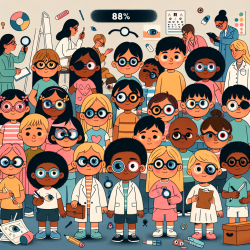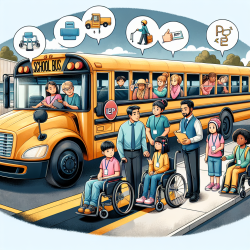Introduction
In the realm of education, peer assessment has emerged as a pivotal tool, allowing students to evaluate each other's work, thereby fostering a deeper understanding of the subject matter. The research article "Peer assessment of student-produced mechanics lab report videos" provides insightful data on how peer evaluation can be leveraged to enhance educational outcomes. This blog post will delve into the findings of the study and suggest ways practitioners can implement these insights to improve their skills and encourage further research.
The Power of Peer Assessment
Peer assessment is not a novel concept; it has been utilized across various disciplines, from language learning to physics. The primary advantage of peer assessment lies in its ability to allow instructors to assign open-ended tasks without the burden of grading them all. This is particularly beneficial in large classes where individual grading can be overwhelming.
According to the study, peer assessments often result in higher ratings than expert evaluations. Students initially tend to give high ratings, which gradually shift to more moderate ones by the end of the semester. This change is attributed to the development of a more critical and expert-like evaluation approach among students.
Implementing Research Insights
For practitioners, the findings of this study can be transformative. Here are some actionable strategies:
- Incorporate Structured Peer Review: Implement a structured peer review process in your classroom. Provide students with clear rubrics and examples of high-quality work to guide their evaluations.
- Foster a Growth Mindset: Encourage students to view peer assessment as a learning opportunity rather than just a grading task. This mindset shift can lead to more thoughtful and constructive feedback.
- Utilize Technology: Leverage video lab reports as a medium for peer assessment. This not only enhances students' communication skills but also allows for a more dynamic evaluation process.
- Provide Training: Offer training sessions to help students develop the skills necessary for effective peer assessment. This can include workshops on critical thinking and constructive feedback.
Encouraging Further Research
The study opens up several avenues for further research. Practitioners are encouraged to explore the impact of peer assessment on different subjects and age groups. Additionally, investigating the long-term effects of peer assessment on students' critical thinking and communication skills could provide valuable insights.
Conclusion
Peer assessment is a powerful tool that, when implemented effectively, can significantly enhance educational outcomes. By adopting data-driven strategies and fostering a culture of constructive feedback, practitioners can unlock the full potential of peer evaluation. For those interested in delving deeper into the research, the original paper offers a comprehensive analysis of the study's findings.
To read the original research paper, please follow this link: Peer assessment of student-produced mechanics lab report videos.










